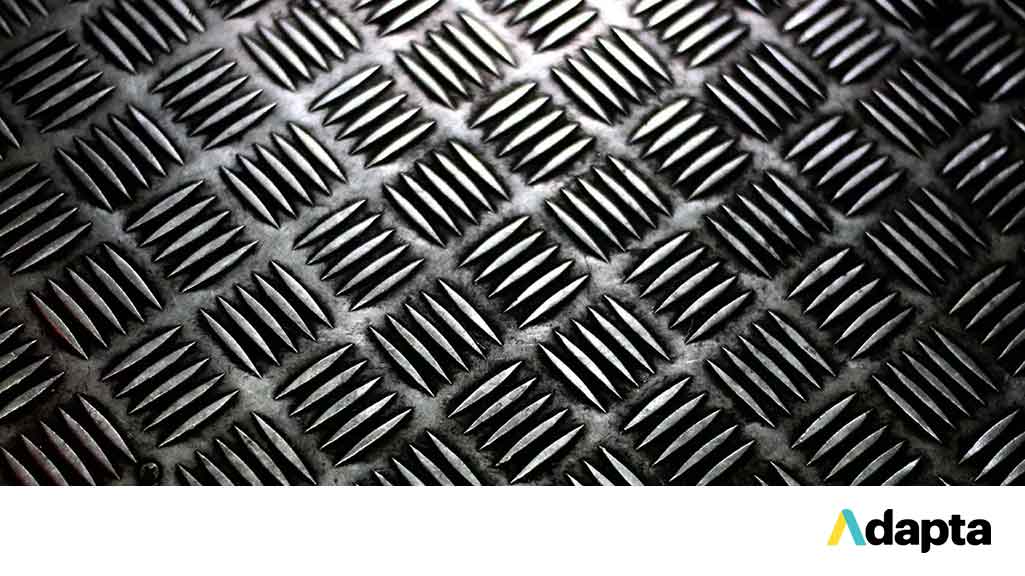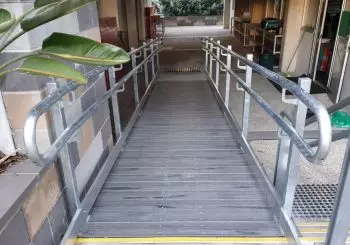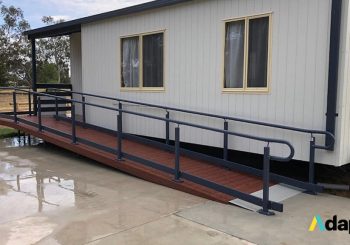Consider the better material when looking to invest in a large product
If you are considering getting a permanent ramp installation for your home or business, you have two material options available to you- aluminium and wood. While wooden ramps may be more cost effective compared to ones made from aluminium, the simplicity, practicality and durability aspects of the latter make aluminium ramps well worth the slightly higher costs. Let’s take a look at the characteristics of both these access ramp building materials in order to understand what their pros and cons are
Aluminium Vs. Wooden Ramp
1. The Cost Factor
On the surface, it might not seem that there is a vast difference between the two. However, there is. While it’s a fact that everyone wants to opt for more cost effective solutions, the cost aspect cannot be considered in isolation. It is important to take a long-term view when you are choosing a ramp material.
When you choose wood, you have to deal with regular maintenance which translates into hidden costs. In addition, it’s also quite troublesome and time-consuming to ensure that you get this maintenance done regularly. In simple words, wooden ramps may seem like a more economical option in the short term.
However, their labor costs involved in construction of a wooden ramp are significantly higher than aluminium. Aside from this, the recurring as well as replacement costs of this feature far outweigh cost benefit that you seem to get at the outset. In comparison, when you opt for aluminum, you pay a slightly higher upfront cost, which is well worth it in the long term.
2. The Maintenance Aspect
As mentioned earlier, a wooden ramp comes with hidden costs. You would need to paint and pressure treat it each year as wood is prone to decay and deterioration when exposed to the elements and harsh weather conditions. In fact, even treated wood can become impacted by termites, rot, early detrioration and climatic changes.
3. Wooden Surfaces Arent Non-Slip
During the rainy season, the wooden surfaces of the ramp can become very slippery. This is true even in warmer climates. Moving your wheelchair along a wet wooden ramp can prove to be quite risky. This same problem arises if there is snow or ice on the wood ramp. This situation has the potential to lead to accidents, causing serious injuries. While it’s possible to install treads along the ramp’s surface, this will prove to be an added cost, over what you pay for the ramp.
In comparison, and aluminuim ramp can be customised as per your requirements and most come with non-slip surfaces. Good quality aluminium ramps have a corrugated or patterned surface that provides good traction, preventing the wheelchair from sliding down the slope. Some brands also provide rubber non-slip ramp surfaces and these add to the safety of the feature.
4. Footing Installations
When you are getting a wooden ramp built, you would first need to install concrete footings. The ramp’s posts need to be stable and sturdy, making it necessary to dig below the frost line while installing posts. Not only does this escalate the installation costs, but increases the time taken to complete the project as well. On the other hand, an aluminum ramp doesn’t need any concrete footings, as it relies on the structure’s welded parts.
You can easily save yourself a lot of hassle, time and money by opting for an aluminum ramp. If you want to know more about our disability ramps and the various options on offer, don’t hesitate to get in touch with us at Adapta. You can call 1800 232 782 or contact us through this form and one of our representatives will contact you shortly.



